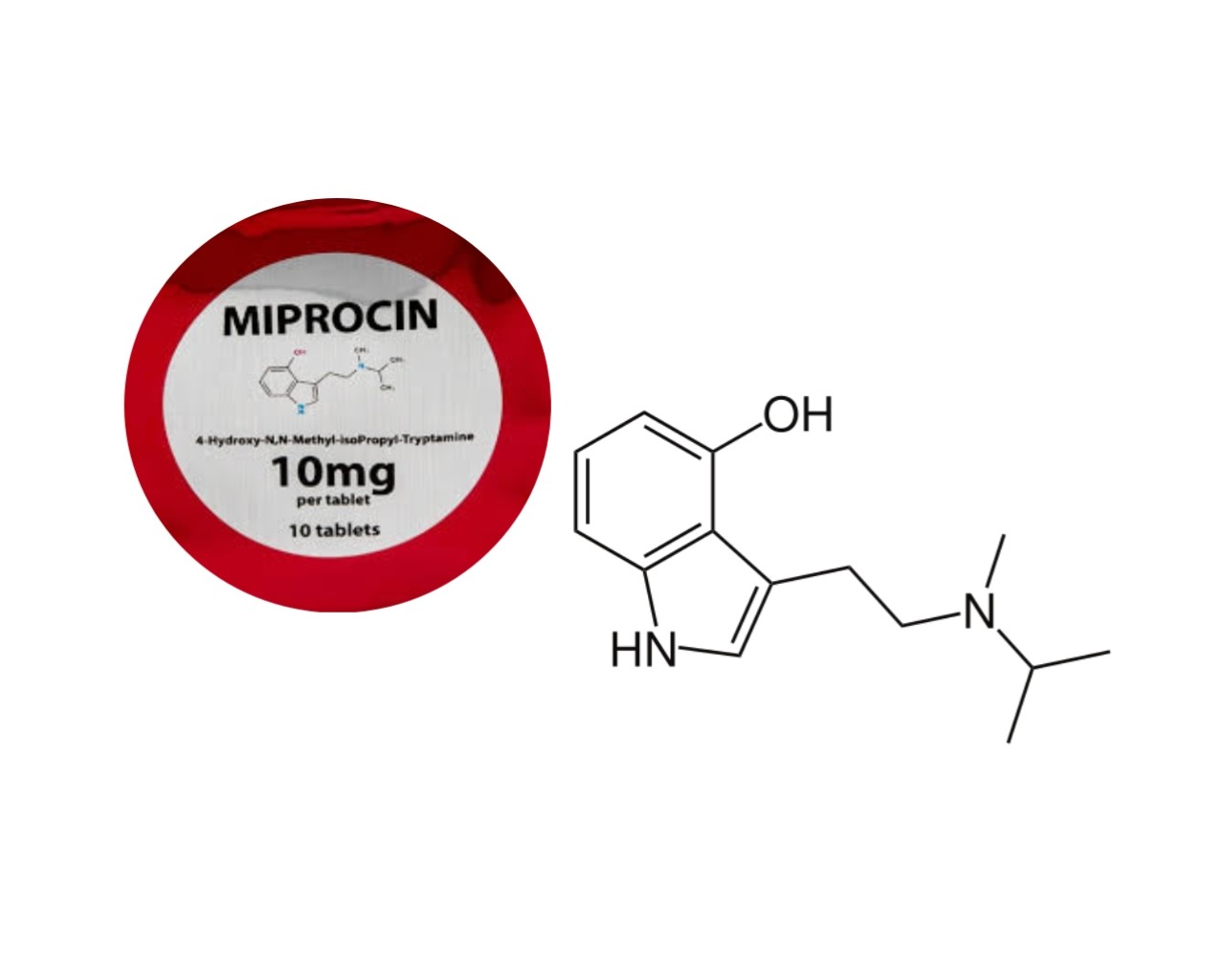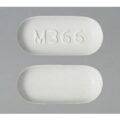
Miprocin (4-HO-MiPT) is a novel psychedelic substance of the tryptamine class that produces psilocybin-like psychedelic effects when administered. This substance is relatively uncommon and has only a short history of human use. Miprocin can affect all the senses, altering a person’s thinking, sense of time, and emotions. They can also cause a person to hallucinate, seeing or hearing things that do not exist or are distorted.
Miprocin is either used recreationally or as an entheogenic substance. Alexander Shulgin evaluated its activity in humans in 1979, describing a trial of 12mg as a richly insightful and highly erotic experience. There’s increased interest in using Miprocin for addictions, depression, and other mental and psychological disorders due to its potential to stimulate certain areas of the brain.
Miprocin is at least twice as active as psilocin according to anecdotal sources. Miprocin is typically distributed as a grey-area research chemical by online vendors. However, Miprocin is illegal under federal law in the US. It is classified as a Schedule I controlled substance.
How does it work?
Very little data exists about the pharmacological properties, metabolism, and toxicity of Miprocin in humans. The good news is that there have been no reported deaths from Miprocin use despite the existence of reports of people taking doses that far exceed the active dose. This suggests that it is well-tolerated physiologically.
Effects of Miprocin
Miprocin can affect everyone differently, based on the following factors :
- Size and weight of the person
- Underlying health conditions
- How long the person has been using Miprocin
- If other drugs are taken around the same time as Miprocin
- Quantity or dosage of Miprocin taken
- Strength of Miprocin taken
- Environment or conditions under which the drug is taken
The effects of Miprocin usually begin in 15-30 minutes when taken orally, or within minutes when taken with other agents that fast track its absorption by the body and can last approximately almost 8 hours or more.
During this time, the person may experience the following:
- An intense feeling of euphoria
- Rich, insightful, and highly erotic experience that changes consciousness, mood, thought, and perception (commonly called a trip)
- Dilation of pupils
- Changes in perception, such as visual and auditory hallucinations (seeing or hearing things that aren’t there, or are distorted)
- Abdominal discomfort and nausea
- Mild to severe headaches
- Irregular heartbeat
- Fever or increased body temperature
- Irregular breathing pattern
- Nausea and vomiting
- Sweating, chills, and facial flushes
Is Miprocin addictive?
No, Miprocin is not considered an addictive drug. Although addiction to hallucinogens is rare, poly-drug addicts (people who are addicted to several drugs) frequently abuse hallucinogens. However, Miprocin does produce tolerance, so some users who take the drug repeatedly must take higher doses to achieve the same effects. This is very dangerous given the unpredictability of the drug and dose. Cross-tolerance between Miprocin and other hallucinogens has been reported.
Overdose
As earlier stated, the use of Miprocin rarely results in any life-threatening symptoms even at higher than the recommended doses. If a large amount or a strong batch of Miprocin is consumed, you may experience the following:
- Agitation
- Coma
- Diarrhea
- Muscle weakness
- Panic
- Paranoia
- Psychosis
- Seizures
- Vomiting
Bad trips
After taking Miprocin a person may experience some negative effects and have a ‘bad trip’.
Signs of a bad Miprocin trip might include:
- Increased anxiety
- Disordered thinking
- Coming down
- Fear or panic
- Paranoia
- Unpleasant hallucinations
After taking Miprocin, delayed headaches can happen. These usually don’t last longer than a day. To reduce the risk of a dangerous experience, it is safer to take a small amount and wait for its effects to be felt. In some cases, hallucinating can be unpleasant or even terrifying and the memory of this intense fear can remain with the person for life. A bad trip can occur at any dose.
Is Miprocin safe?
There isn’t enough reliable information to know if Miprocin is safe to use without medical supervision at any dose, including microdoses. There also isn’t enough reliable information to know if Miprocin is safe to use when pregnant or breastfeeding. Stay on the safe side and avoid use.





